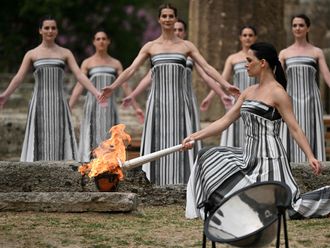Rio de Janeiro: The brave new dawn of rugby sevens at the Olympic Games kicks off on Saturday with women’s teams from trans-Tasman rivals Australia and New Zealand fancied to be battling it out with Canada and Britain for gold.
The three-day tournament, to be followed by the men’s competition, will be the first team event at the 2016 Olympics, showcasing the 12 sides who have qualified through consistent results and being the best in their continent.
It will be the first time since 1924 that rugby has been played at the Olympics and the debut for sevens, the previous four incarnations featuring 15-a-side tournaments.
While the men’s tournament is set to be one of the hardest to call, with six different countries having won over the 10-leg series last season, the women’s is slightly more polarised in terms of competitiveness.
Top seeds Australia will play the United States, Fiji and Colombia in Pool A while New Zealand, France, Spain and Kenya contest Pool B. Canada, Britain, Brazil and Japan complete the field in Pool C.
The top two teams from each pool qualify for the knockout rounds, along with the two best third-placed sides at the 15,000-capacity Deodoro stadium.
“As a collective it’s incredible how far teams have come in the last few years,” said Canada’s Ghislaine Landry, last season’s leading points scorer on the Sevens Series with 158pts.
“The speed, the tackling and the quality and style of attack are better than they’ve ever been.”
The ramifications of sevens’ inclusion in the Olympics was also not lost on Landry, whose side are ranked third after Australia and the Kiwis.
“When we go to tournaments now, there are kids everywhere and they are excited about rugby,” she said.
“Five years ago that was almost non-existent, especially in Canada. We are seeing this buzz and this is going to be a huge push forward.”
Australia will be aiming to wrap up a highly successful 2016, having already clinched the series title.
“The World Series is progressing at such a rapid rate that the standard is increasing really well. You can’t come up against any team and be complacent,” said Wallaby Chloe Dalton.
“Everybody coming into the Games is going to whip out a few new tricks. We are expecting the unexpected.”












